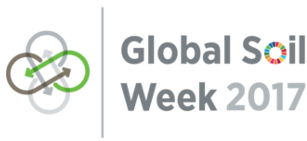Since the mid-2000, with the unprecedented hikes of food and oils prices, the question as to whether the world will be able to feed itself in the coming decades agitates international development forums and has become for many countries an issue of priority for national security. The global food security challenge of the world has also elevated the strategic importance of water and land/soil resources; with the African continent perceived as the region where are located the most significant reserves of underexploited freshwater and agricultural land. The continent is hence at the center of the global competition for these two resources.
 However, current large scale production schemes in African countries require unsustainable levels of freshwater abstraction and expansion of the arable land frontier. At the same time, smallholder farmers, which make up more than 80 percent of African agricultural production, are often excluded or even severely threatened by those developments. Both lead to the enormous extent and pace of land degradation that the African continent is facing and to the paradox that Africa is today the most vulnerable continent to food insecurity and poverty.
However, current large scale production schemes in African countries require unsustainable levels of freshwater abstraction and expansion of the arable land frontier. At the same time, smallholder farmers, which make up more than 80 percent of African agricultural production, are often excluded or even severely threatened by those developments. Both lead to the enormous extent and pace of land degradation that the African continent is facing and to the paradox that Africa is today the most vulnerable continent to food insecurity and poverty.
In policy and wider development schemes land/soil and water have been increasingly managed in isolation from each other. But, land use change have direct effect on groundwater and surface water; increasing water productivity in agriculture cannot be delinked with measures addressing the productivity of the land; access to water rights is in many instances mediated by access to land; improving land tenure security is often an indispensable incentive to adoption of sustainable water management practices; etc.
Against these backdrops, this session will explore benefits and challenges associated with soil protection and restoration practices that integrate sustainable land and water management practices and will discuss how governance and development schemes can provide for enabling conditions for a sustainable and socially just development.
Key questions to be covered include the following:
How can soil restoration and protection help mitigate declining availability of freshwater and arable land? In soil restoration efforts, what is the value-added of an integrated approach to land and water management compared to business-as-usual?
How can soil/land and water policies created conditions that enable just, inclusive and sustainable management of degraded resources?
.And lastly, how do national and international stipulations (e.g. the 2063 and the 2030 Agendas) and development schemes — e.g. NEPAD’s TerrAfrica Programme (which promotes sustainable land managementl or NEPAD’s AFR100 (African Forest Landscape Restoration Initiative) — consider this in their design and therefore create traction for processes that empower the least powerful?
Facilitators:
- Sithembile Mwamakamba Programme Manager Women Accessing Realigned Markets (WARM) project, FANRPAN, South Africa
Discussants:
- Mamadou Diakhite Team Leader, Sustainable Land and Water Management, NEPAD, South Africa
- Dougbedji Fatondji Researcher, International Crops Research Institute for the Semi-Arid Tropics (ICRISAT) Niamey, Niger
- Kiros Hadgu TScientist and ICRAF Country Representative in Ethiopia
- Paul Kleene Consultant, Agro-Socio-Economist, GRAF, Burkina Faso
- Moustapha Lo Chief, Water Management and Environment Division, SAED (Senegal River Water Development Office), Saint-Louis, Senegal
- Augustine Mhike District Agricultural Extension Services Officer, Ministry of Agriculture, Zimbabwe
This session is co-hosted by:
Food, Agriculture and Natural Resources Policy Analysis Network (FANRPAN)
Global Soil Forum, Institute for Advanced Sustainability Studies (IASS)
Franziska.Linz@iass-potsdam.de and SNdema@fanrpan.org

